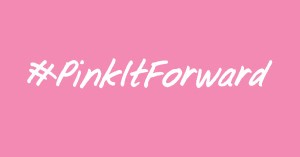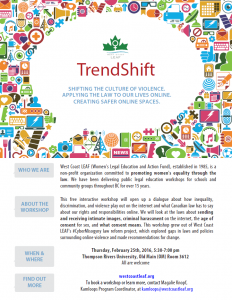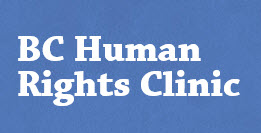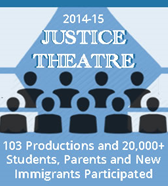Pink Shirt Day – Resources & Events on Bullying
Today is Pink Shirt Day across Canada, a day that raises awareness about bullying. Pink Shirt Day has its beginnings in Nova Scotia, started by two high school students in support of their classmate who was bullied for wearing a pink shirt to school.

In honour of Pink Shirt Day, we are listing key resources and events that educate people on different issues related to bullying:
Bookable Events

TrendShift: a public dialogue/workshop on cyber misogyny, free and open to the public
When? Thursday, February 25, 5:30-7pm at TRU, Kamloops, BC.
What? This free interactive workshop will open up a dialogue about how inequality, discrimination and violence play out on the internet and what Canadian law has to say about our rights and responsibilities online.
TrendShift workshops are available for booking in Kamloops, Nanaimo, and Greater Vancouver. These workshops are for students in Grades 8-12 and was developed as part of our Cyber Misogyny Project. Its goals are to open up spaces for dialogue with youth about their rights and responsibilities online, to think about what violence and discrimination look like in online spaces, and to clear up myths about the laws that apply to their lives online. More info on the length of the workshops, and who you can contact for more information available online here.

The Justice Theatre troupe consists of seven professional actors who stage scripted hour-long dramatizations of criminal trials on topics affecting students in elementary and secondary schools throughout the school year in Vancouver, the Lower Mainland and the Fraser Valley. Justice Theatre is delivered throughout the province of BC.
The one-hour performances address current topics affecting young people and communities-at-large. Frequently requested topics include: Bullying and the Internet, and Bullying and Violence. Schools and community groups should contact Rob McAninch, Justice Theatre director, to find out when the troupe will be in their community or to book a special event.
Online Resources
![]()
What can you do about cyberbullying?
This common question gives you good starting points to learn more about cyberbullying and what you can do to stop it. It includes CBA BC’s resource, Stalking, Criminal Harassment and Cyberbullying, and West Coast LEAF’s resource, “Is that legal?” – a CyberMisogyny Legal Guide, which explains Canadian law about issues of online harassment, exploitation and abuse.
![]()
Bullying and Harassment: a workplace problem
by People’s Law School
This video resource describes bullying and harassment in the workplace and what can you do if you experience it.

Bullying Law in BC
by BC Human Rights Clinic (CLAS)
This resource reviews protection from bullying at work, personal harassment, and includes a more in-depth resource on Bullying and Harassment in Human Rights Law, which gives tips on what managers can do to maintain a harassment-free workplace environment.




